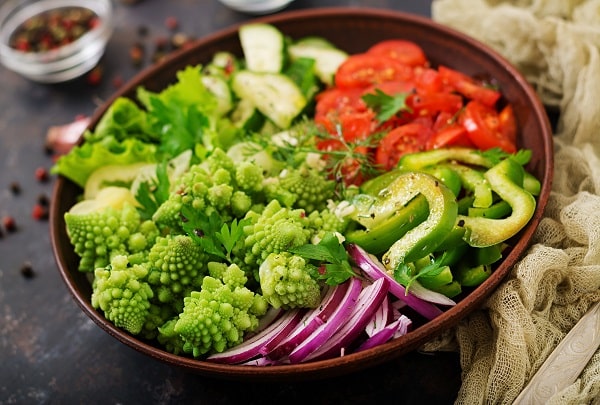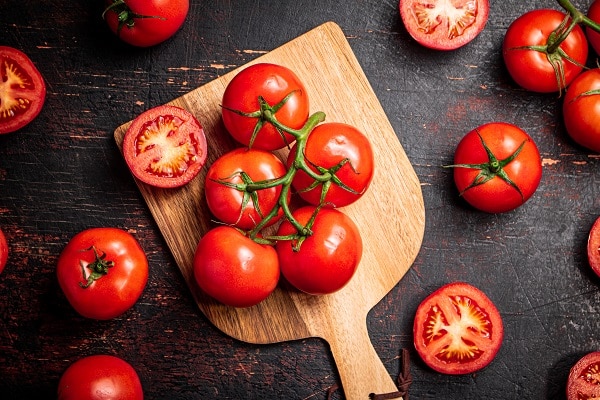When most people think of inflammation, they think of the redness, swelling, and pain that can accompany injuries or illnesses. However, inflammation is a complex biological response that plays an important role in protecting the body from harm. Unfortunately, chronic inflammation can lead to serious health problems, including heart disease, diabetes, and arthritis. Diet can significantly reduce inflammation, and certain foods are particularly effective in combating it. This article will discuss some of the best anti-inflammatory foods to include in your diet. Keep reading for more information!
Contents
Cruciferous vegetables

Cruciferous vegetables are a class of vegetables that includes broccoli, cabbage, Brussels sprouts, and cauliflower. These vegetables are known for their distinctively sharp flavor and their nutrient-richness. Cruciferous vegetables are an excellent source of vitamins C and K and fiber. In addition, they contain compounds that have been shown to have anti-inflammatory properties. For example, sulforaphane is a compound found in cruciferous vegetables that have been shown to inhibit the activity of NF-kB, a molecule that plays a role in inflammation. Furthermore, research suggests that cruciferous vegetables may also protect against cancer. One study found that women who ate the most cruciferous vegetables had a lower risk of breast cancer. Additionally, cruciferous vegetables contain glucosinolates, broken down into compounds that have been shown to have anticancer effects. These health benefits make cruciferous vegetables an important part of a healthy diet.
Almonds And Walnuts

Almonds and walnuts are two of the most popular nuts in the world. They both have a rich, nutty flavor in sweet and savory dishes. But did you know these tasty nuts also have impressive health benefits? Studies have shown that almonds and walnuts have potent anti-inflammatory properties. This means they can help reduce the swelling and redness associated with conditions like arthritis and asthma. Moreover, these nuts are also a good source of antioxidants, which help protect cells from damage and may even reduce the risk of some chronic diseases. So next time you’re looking for a healthy snack, reach for a handful of almonds or walnuts. Your body will thank you for it!
Tomatoes

Tomatoes have long been praised for their health benefits. These red fruits are a good source of vitamins A and C and antioxidants like lycopene. Lycopene is a pigment that gives tomatoes their characteristic red color, and it has been shown to have anti-inflammatory properties. Studies have suggested that lycopene may help to reduce the risk of several chronic diseases, including heart disease and cancer. In addition to their antioxidant content, tomatoes also contain compounds that can help to boost the immune system. For example, the fruit is a good source of beta-carotene, which the body converts into vitamin A. Vitamin A is essential for maintaining a healthy immune system and can help protect against infections. Tomatoes also contain citric acid, which has antibacterial properties. Combined, these nutrients make tomatoes a powerful tool for promoting overall health.
Garlic

Garlic has long been used as a natural remedy for various ailments. Modern science has confirmed that garlic does indeed have several health benefits. One of the most well-known is its ability to fight inflammation. Inflammation is a response by the body to protect against infection or injury. However, chronic inflammation can lead to serious health problems, such as heart disease and arthritis. Garlic inhibits the production of inflammatory cytokines, which helps to reduce inflammation throughout the body. In addition to its anti-inflammatory properties, garlic is also a potent antioxidant. Antioxidants help to neutralize harmful free radicals, which can damage cells and lead to disease. Studies have shown that garlic can help to protect against several diseases, including cancer. Furthermore, garlic is a natural antibacterial agent, making it an effective treatment for infections. Thanks to its wide range of health benefits, garlic is truly a powerhouse of natural medicine.
Tea

Tea is more than just a delicious beverage. It has been used as a folk remedy for various ailments for centuries. Modern science has begun to unlock the secrets of tea’s healing properties, and recent studies have shown that it can have significant health benefits. One of the most well-known is its anti-inflammatory properties. In one study, participants who drank four cups of black tea per day for six weeks had lower levels of inflammation-causing cells in their blood than those who didn’t drink tea. Tea is also a rich source of antioxidants, which can help to protect cells from damage and may reduce the risk of some chronic diseases. Whether you’re enjoying a cup of Earl Grey or green tea, know that you’re doing your body good. So go ahead and indulge in your daily cup (or two) without guilt. Your body will thank you for it.
Berries

Berries are not only delicious, but they also offer a variety of health benefits. One of the most significant benefits is its anti-inflammatory properties. Inflammation is a natural process that helps the body heal from injury or infection. However, chronic inflammation can lead to several severe health conditions, including heart disease and arthritis. Berries are rich in compounds that help to reduce inflammation. In addition, berries are a good source of fiber and antioxidants, linked to a reduced risk of cancer and other chronic diseases. So, next time you’re looking for a healthy snack, reach for some berries instead of processed junk food. Your body will thank you!
Start Reducing Inflammation Today!
There are many ways to reduce inflammation in the body, but one of the best ways is through diet. Adding certain foods to your diet can help to decrease inflammation and improve your overall health. Some of the best foods for reducing inflammation include omega-3 fatty acids, antioxidants, and phytochemicals. Omega-3 fatty acids are found in fish and nuts and help reduce inflammation by inhibiting the production of inflammatory chemicals. Antioxidants are found in fruits and vegetables and help protect cells from damage. Phytochemicals are found in plant-based foods and help reduce inflammation by modulating the immune response. By adding these anti-inflammatory foods to your diet, you can start reducing inflammation today.


